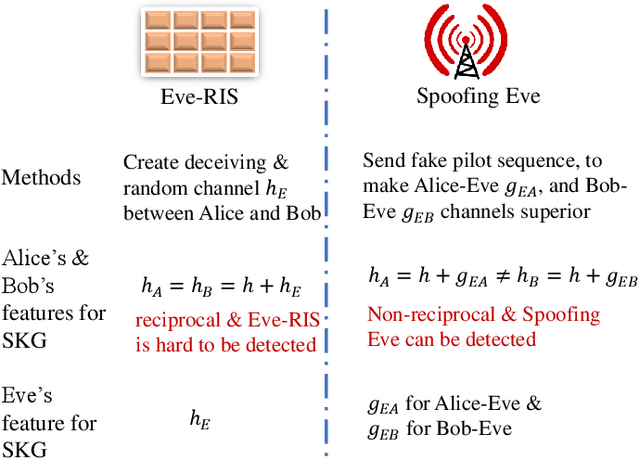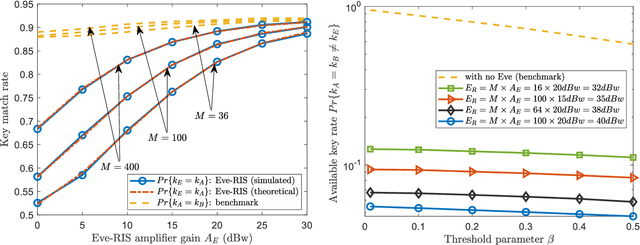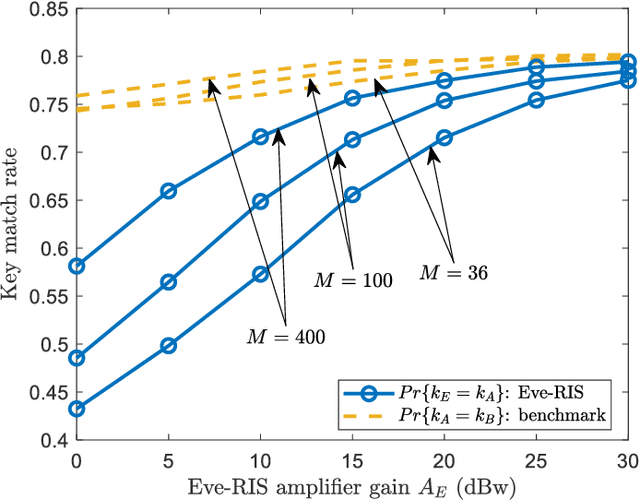Adversarial Reconfigurable Intelligent Surface Against Physical Layer Key Generation
Paper and Code
Jun 22, 2022



The development of reconfigurable intelligent surface (RIS) has recently advanced the research of physical layer security (PLS). Beneficial impact of RIS includes but is not limited to offering a new domain of freedom (DoF) for key-less PLS optimization, and increasing channel randomness for physical layer secret key generation (PL-SKG). However, there is a lack of research studying how adversarial RIS can be used to damage the communication confidentiality. In this work, we show how a Eve controlled adversarial RIS (Eve-RIS) can be used to reconstruct the shared PLS secret key between legitimate users (Alice and Bob). This is achieved by Eve-RIS overlaying the legitimate channel with an artificial random and reciprocal channel. The resulting Eve-RIS corrupted channel enable Eve to successfully attack the PL-SKG process. To operationalize this novel concept, we design Eve-RIS schemes against two PL-SKG techniques used: (i) the channel estimation based PL-SKG, and (ii) the two-way cross multiplication based PL-SKG. Our results show a high key match rate between the designed Eve-RIS and the legitimate users. We also present theoretical key match rate between Eve-RIS and legitimate users. Our novel scheme is different from the existing spoofing-Eve, in that the latter can be easily detected by comparing the channel estimation results of the legitimate users. Indeed, our proposed Eve-RIS can maintain the legitimate channel reciprocity, which makes detection challenging. This means the novel Eve-RIS provides a new eavesdropping threat on PL-SKG, which can spur new research areas to counter adversarial RIS attacks.
 Add to Chrome
Add to Chrome Add to Firefox
Add to Firefox Add to Edge
Add to Edge